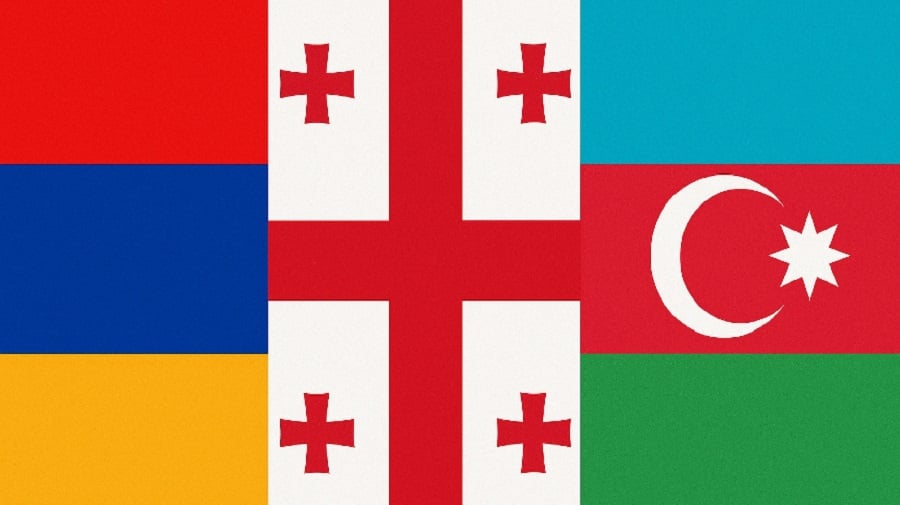Council of Europe. Council of Europe anti-racism body ECRI publishes conclusions on how Armenia, Azerbaijan and Georgia implement its priority recommendations
The European Commission against Racism and Intolerance (ECRI), a Council of Europe independent expert body, has published today its conclusions on the implementation by Armenia, Azerbaijan and Georgia of its recommendations provided in 2023, for which priority follow-up was requested.
For Armenia, the first priority recommendation to the authorities was to engage in awareness-raising activities on the importance of diversity and tolerance in society by supporting concrete actions in co-operation with the Human Rights Defender and relevant civil society representatives from different backgrounds, including ethnic, religious and sexual minorities, with the aim of preventing and combating racist and LGBTI-phobic hate speech, hate-motivated violence and discrimination. ECRI takes note of the efforts made and the initial steps taken, including in the framework of the Armenia’s Action Plan on the Human Rights Protection National Strategy 2023-2025, but concludes that its recommendation has only been partially implemented. The second priority recommendation for Armenia was to adopt an Integration Strategy accompanied by suitable financial resources and capacity-building to ensure effective support actions for refugees, asylum seekers and migrants. ECRI was informed by the Armenian authorities of several actions taken to respond to the unprecedented humanitarian challenge due to the large-scale displacement of over 100,000 Karabakh Armenians as a result of Azerbaijan’s military operation in the region on 19 and 20 September 2023. While acknowledging the challenges faced by the Armenian authorities and taking positive note of quick relief responses through cash assistance as well as measures aimed at facilitating access to social protection, expanding access to healthcare, and ensuring education for displaced children, ECRI concludes that, in the present state of affairs, its recommendation has not yet been implemented.
In its 2023 report on Azerbaijan, the first priority recommendation to the authorities was to bring the competences, independence and effectiveness of the Commissioner for Human Rights (Ombudsman) fully in line with ECRI’s standards, by ensuring a transparent selection and appointment procedure of the Ombudsman; establishing a separate entity within the Ombudsman’s Office to deal with non-discrimination and equality-related work and complaints; and to increase the capacity of the Office staff. While the fact that the Ombudsman is now elected by the Parliament is a step in the right direction, ECRI is of the view that the procedure currently enshrined in the law is not sufficiently transparent, and that there can still be a decisive influence by the executive in the selection process, notably during the phase of nomination or pre-selection of candidates by the President of Azerbaijan. ECRI recognises that some action has been taken to strengthen the Ombudsman but concludes that its recommendation has been partially implemented. The second priority recommendation was to set up a comprehensive data collection system for cases of racist and LGBTI-phobic hate speech and hate crime, and make this data be made available to the public. ECRI regrets to note that no steps have been taken to set up a system to produce fully disaggregated data on hate speech and hate crime, by category of offence, type of hate motivation, target group, as well as judicial follow-up and outcome, or to make such data publicly available. It concludes that this recommendation has not been implemented.
For Georgia, the first priority recommendation to the authorities was to significantly increase the number of hours of teaching Georgian as a second language in minority schools at primary and secondary level. ECRI was informed that the Bilingual Education Programme launched in 2020 was intensified and expanded, with the number of preschools involved having gone from 15 to 34, and the number of participating non-Georgian-language schools increased from 35 to 169, out of a total of 300 such schools. ECRI shares the view of the Advisory Committee on the Framework Convention for the Protection of National Minorities (FCNM), which in 2024 welcomed the authorities’ willingness to improve the quality in learning Georgian, whilst preserving teaching and learning of respective minority languages, by putting in place a bilingual education model. ECRI commends the authorities for their significant efforts and concludes that this recommendation has been fully implemented. The second priority recommendation was to form an inter-agency committee, which would include representatives of the Public Defender’s Office (Ombudsman’s Office), international organisations and relevant civil society organisations, in order to implement the equality part of the National Human Rights Strategy 2022-2030. ECRI received no information about an inter-agency committee, or a similar mechanism having been set up, or about any plans to establish such a body. ECRI regrets this, as the creation of such a forum would enable a structured and formalised dialogue between the authorities and civil society, in particular. ECRI considers that the recommendation has not been implemented.
























































